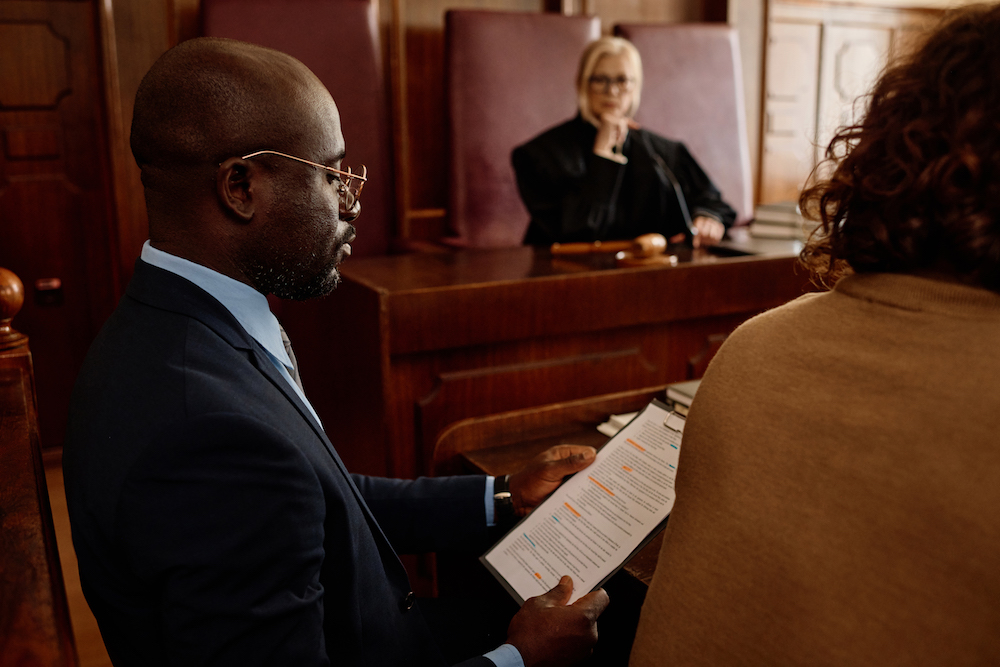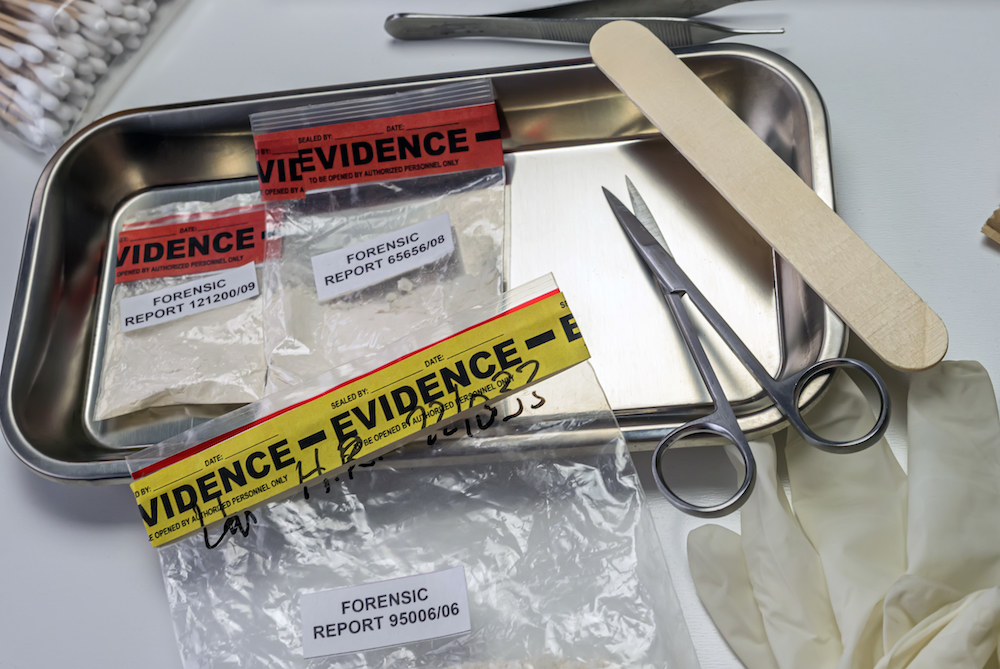Understanding Criminal Sexual Conduct Defense: Your Guide to Protecting Your Rights
Allegations of criminal sexual conduct can have serious consequences, impacting one’s reputation, relationships, and future prospects. When facing such a charge, it is essential to have an accomplished criminal defense attorney by your side.

Understanding Criminal Sexual Conduct Charges
Criminal sexual conduct charges encompass a wide range of behaviors with varying degrees of severity and potential consequences. These charges may involve non-consensual sexual acts, inappropriate contact with minors, or other sexually-related offenses.
Types of Criminal Sexual Conduct Offenses May Include
Sexual assault
Sexual assault encompasses a wide range of unwelcome behaviors, including but not limited to attempted or completed penetration, that occur against a victim’s will or when a victim is unable to consent due to factors such as age, disability, or the influence of alcohol or drugs.
Rape
Rape is typically defined as any nonconsensual oral, anal, or vaginal penetration of the victim using force, threats of bodily harm, or by taking advantage of a victim who is unable to give consent. Incapacitation may result from mental or cognitive disability, self-induced or forced intoxication, being a minor, or any other condition defined by law that prevents an individual from giving consent.
Statutory rape
Statutory rape is when an adult engages in sexual activity with someone who is not old enough to legally give consent, even if the younger person agrees to it. This is considered a crime because the law says that young people are not able to make that kind of decision for themselves.
Indecent exposure
Indecent exposure involves deliberately revealing one’s private body parts in a manner that is offensive or contrary to accepted behavior in a public setting. Private body parts that are not permitted to be displayed in public include genitals, inner buttocks, and female nipples.
Child molestation
Child molestation refers to a range of sexual misconduct involving minors, including sexual touching and physical contact.
Sexual battery
Sexual battery occurs when someone purposefully touches another person in a harmful or offensive manner without their consent.
Internet-related sex crimes
Crimes involving the internet and sexual exploitation encompass a wide range of illicit activities conducted online, including but not limited to online solicitation of minors, sex trafficking, sexting with minors, cyberstalking and harassment, and online dating scams.

Degrees of Criminal Sexual Conduct
Criminal sexual conduct offenses are categorized into different degrees or levels, typically ranging from first-degree to fifth-degree. The classification often depends on factors such as:
- The age of the alleged victim
- The use of force or coercion
- The presence of weapons
- The relationship between the accused and the alleged victim
These classifications significantly impact the potential penalties and long-term consequences of a conviction.
Initial Case Evaluation
- Upon taking a case, defense attorneys will conduct a thorough evaluation, which may include:
- Reviewing police reports and witness statements
- Examining physical evidence and forensic reports
- Interviewing the accused and potential witnesses
- Assessing the strength of the prosecution’s case
This comprehensive evaluation allows the attorney to identify potential weaknesses in the prosecution’s arguments and develop an effective defense strategy.
Building a Strong Defense Strategy
The defense attorney will craft a tailored strategy based on the case evaluation to protect the client’s rights and interests. The process may involve:
- Challenging the credibility of witnesses
- Questioning the validity of physical evidence
- Exploring potential constitutional violations during the investigation
- Negotiating with prosecutors for reduced charges or dismissal
The specific approach will depend on the unique circumstances of each case and the evidence available.
Navigating Pre-Trial Proceedings
Criminal sexual conduct cases often involve complex pre-trial proceedings. A skilled defense attorney will guide their client through these stages, which may include:
- Arraignment and bail hearings
- Preliminary examinations
- Motions to suppress evidence
- Plea negotiations
Throughout these proceedings, the attorney will work to protect their client’s rights and lay the groundwork for a strong defense at trial, if necessary.
Common Defense Strategies in Criminal Sexual Conduct Cases
Defending against sexual offense charges requires a nuanced approach tailored to the specific circumstances of each case. Some common defense strategies include:
Consent Defense
- In cases involving adult victims, establishing that the sexual act was consensual can be a powerful defense. This strategy often involves:
- Presenting evidence of prior relationships or communications
- Challenging inconsistencies in the alleged victim’s account
- Demonstrating the absence of physical evidence of force or coercion
However, it’s important to note that consent defenses are not applicable in cases involving minors or individuals deemed legally incapable of giving consent.
Mistaken Identity
In some cases, the accused may have been wrongly identified as the perpetrator. Defense attorneys may challenge eyewitness identifications or present alibi evidence to demonstrate their client’s innocence.
False Accusations
- Unfortunately, false accusations of sexual misconduct do occur. Defense attorneys may explore motivations for false allegations, such as:
- Revenge or retaliation
- Custody disputes
- Financial gain
Presenting evidence of the accuser’s credibility issues or inconsistencies in their story can be crucial in these cases.
Lack of Intent
For instance, if the police searched without a warrant or forced a confession, these actions could be considered a breach of the accused person’s constitutional rights. Certain sexual offense charges necessitate evidence of a specific intent. Defense attorneys might contend that their client’s actions, while possibly inappropriate, did not meet the legal standard for criminal behavior.

Challenging Evidence in Sexual Offense Cases
A critical aspect of criminal sexual conduct defense involves scrutinizing and challenging the evidence presented by the prosecution. This may include:
DNA Evidence
While DNA evidence can be compelling, it’s not infallible. Defense attorneys may:
- Question the collection and handling procedures
- Challenge the interpretation of results
- Explore alternative explanations for the presence of DNA
- Witness Testimony
Eyewitness accounts can be unreliable, especially in emotionally charged situations. Defense strategies may involve:
- Cross-examining witnesses to expose inconsistencies
- Presenting expert testimony on the fallibility of memory
- Challenging the credibility of witnesses based on bias or motivation
Digital Evidence
In cases involving alleged online sexual offenses, defense attorneys may:
- Question the authenticity of digital communications
- Challenge the methods used to obtain electronic evidence
- Explore potential Fourth Amendment violations in evidence collection
The Impact of Forensic Evidence in Sexual Offense Cases
Forensic evidence often plays a crucial role in criminal sexual conduct cases. Understanding and effectively challenging this evidence is vital to a strong defense strategy.
Types of Forensic Evidence
Common forms of forensic evidence in sexual offense cases include:
- Biological samples (e.g., semen, saliva, hair)
- Trace evidence (e.g., fibers, soil)
- Digital forensics (e.g., computer and phone data)
- Medical examination results
- Each type of evidence requires specialized knowledge to interpret and potentially challenge.

Challenging Forensic Evidence
Defense attorneys may employ various strategies to question forensic evidence, such as:
- Hiring independent experts to review findings
- Challenging the chain of custody for physical evidence
- Questioning the reliability of testing methods
- Exploring alternative interpretations of results
By thoroughly examining and potentially discrediting forensic evidence, defense attorneys can weaken the prosecution’s case and create reasonable doubt.

Navigating Sex Offender Registration Requirements
One of the most severe consequences of a sexual offense conviction is the requirement to register as a sex offender. Understanding these requirements is crucial for those facing charges.
Sex Offender Registry Basics
Sex offender registration laws vary by jurisdiction but generally require convicted individuals to:
- Provide personal information to law enforcement
- Update their information regularly
- Notify authorities of any changes in residence or employment
- Comply with restrictions on where they can live or work
The duration of registration requirements can range from several years to life, depending on the offense and jurisdiction.
Challenging Registration Requirements
In some cases, it may be possible to challenge or modify sex offender registration requirements. Strategies may include:
- Petitioning for removal from the registry after a specified period
- Challenging the constitutionality of certain registration provisions
- Seeking exceptions or modifications based on individual circumstances
A skilled defense attorney can guide clients through these complex processes and advocate for their rights.
The Role of Mental Health Evaluations in Sexual Offense Cases
Mental health assessments often play a significant role in criminal sexual conduct cases, both for the defense and prosecution.
Types of Mental Health Evaluations
Typical evaluations in sexual offense cases include:
- Competency evaluations to determine fitness to stand trial
- Risk assessments to gauge the likelihood of reoffending
- Psychosexual evaluations to assess sexual behavior patterns
- Trauma assessments for alleged victims
These evaluations can significantly impact case outcomes and sentencing decisions.
Using Mental Health Evidence in Defense Strategies
Defense attorneys may utilize mental health evaluations to:
- Demonstrate diminished capacity or lack of intent
- Support arguments for alternative sentencing options
- Challenge the reliability of victim testimony in cases involving trauma
- Provide context for the defendant’s actions or state of mind
However, it’s crucial to approach mental health evidence carefully, as it can also potentially harm the defense if not presented strategically.

Plea Bargaining in Criminal Sexual Conduct Cases
Many sexual offense cases are resolved through plea bargaining rather than going to trial. Understanding the plea bargaining process is essential for defendants and their attorneys.
Benefits of Plea Bargaining
Potential advantages of plea agreements include:
- Reduced charges or penalties
- Avoiding the uncertainty of a trial
- Resolving the case more quickly
- Potentially avoiding sex offender registration requirements
However, accepting a plea deal also means giving up the right to a trial and the possibility of acquittal.
Negotiating Favorable Plea Agreements
Skilled defense attorneys employ various strategies when negotiating plea deals, such as:
- Leveraging weaknesses in the prosecution’s case
- Presenting mitigating factors about the defendant
- Exploring alternative sentencing options
- Negotiating for charges that don’t require sex offender registration
The decision to accept a plea deal should be made carefully, considering all potential consequences and alternatives.
Preparing for Trial in Sexual Offense Cases
Preparing for trial becomes crucial when plea negotiations are unsuccessful or not in the client’s best interest. A thorough trial preparation process typically involves the following:
- Jury Selection Strategies
- Selecting an impartial jury in sexual offense cases can be challenging due to the sensitive nature of the charges. Defense attorneys may focus on:
- Identifying potential biases among jurors
- Asking probing questions during voir dire
- Using peremptory challenges strategically
- Educating jurors on the presumption of innocence

Developing a Compelling Narrative
Crafting a coherent and persuasive story for the jury is essential. This may involve:
- Presenting a timeline of events that supports the defense’s theory
- Humanizing the defendant through character witnesses
- Explaining seemingly incriminating evidence in a favorable light
- Addressing potential weaknesses in the case proactively

Preparing Witnesses
Thorough witness preparation is crucial for a strong defense. This includes:
- Conducting mock examinations and cross-examinations
- Reviewing prior statements for consistency
- Preparing witnesses for potentially aggressive questioning
- Ensuring witnesses understand the importance of honesty and clarity
Options After a Conviction for Criminal Sexual Conduct Offenses
There might still be avenues to pursue relief or minimize the sentence even after a conviction.
Appeals Process
Grounds for appeal in sexual offense cases may include:
- Legal errors during the trial
- Ineffective assistance of counsel
- Newly discovered evidence
- Constitutional violations
The appeals process can be complex and time-sensitive, requiring specialized legal expertise.
Sentence Modification
In some cases, it may be possible to seek modifications to the original sentence, such as:
- Requesting early release or parole
- Petitioning for removal from sex offender registries
- Seeking alternatives to incarceration, such as treatment programs
Expungement and Record Sealing
While challenging in sexual offense cases, some jurisdictions may allow for the expungement or sealing of records under certain circumstances. An expungement can help mitigate the long-term consequences of a conviction.
The Importance of Specialized Legal Representation
Given the complexity and high stakes of criminal sexual conduct cases, working with an attorney specializing in this law area is crucial.
The defense attorneys at Jeddeloh Snyder Stommes bring:
- In-depth knowledge of relevant laws and precedents
- Experience with forensic evidence and expert witnesses
- Understanding of local court procedures and prosecutor tendencies
- Strategies for managing media attention and protecting client privacy
Aggressive Defense of Criminal Sexual Conduct
Dealing with accusations of criminal sexual conduct can be daunting and life-changing. The defense lawyers at Jeddeloh Snyder Stommes possess a deep understanding of the defense procedure and can adeptly navigate these obstacles. We examine all potential defense tactics, vigorously contest evidence, and make well-informed choices throughout the legal process to assist defendants in achieving the most favorable outcome in their cases. It’s crucial to bear in mind that each case is distinct, and the counsel of a skilled criminal sexual conduct defense lawyer is invaluable in safeguarding your rights and future.
Minnesota Law Articles

Protecting Your Rights: A Comprehensive Guide to DWI Defense in St. Cloud, MN under Minnesota DWI Laws
Driving While Intoxicated (DWI) is a serious offense that can have severe consequences. Understanding the definition and consequences of DWI is crucial for anyone facing such charges. In Minnesota, DWI is defined as operating a motor vehicle while under the influence...
